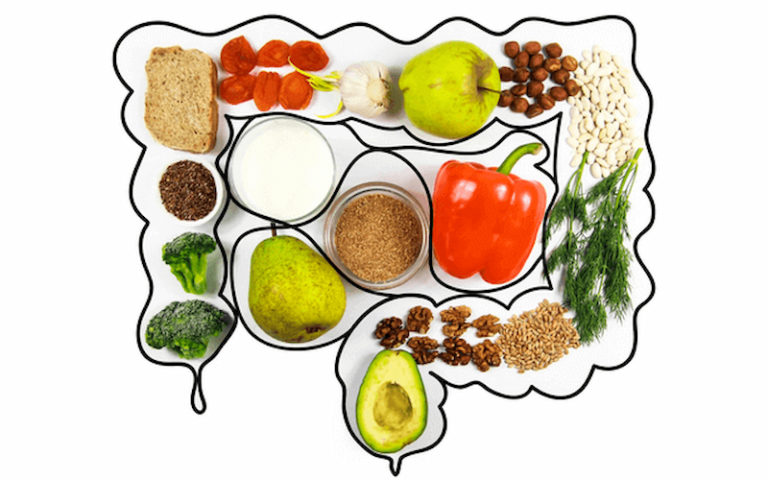In human metabolism, the thyroid system plays a vital role. The thyroid hormone is one of the three key hormones that regulate your metabolism and body weight, alongside insulin and cortisol. There are cases where people who have been struggling with weight gain, mood swings, fatigue, cold sensitivity, and other symptoms for decades realize a tad too late that the reason for all these symptoms was an underactive thyroid.
Appropriate tests conducted at the right time are the essential point that is critical in determining if a weak thyroid is causing metabolic and other disorders. There are a variety of solutions for treating thyroid problems once the underlying cause has been recognized. When evaluating a patient’s health, it’s critical to consider the symptoms, do a physical examination, and consider contributing factors to thyroid diseases, all of which should be followed by relevant testing.
Thyroid-stimulating hormone (TSH) is the most commonly recommended test by doctors, even though it does not convey a comprehensive overview of the thyroid. In reality, it is noticed that the test’s analysis is erroneous most of the time. According to the American College of Endocrinology’s criteria, a person is identified to be hypothyroid when their TSH level is higher than 3.0. Many specialists consider that cases with a score of greater than 5 or 10 are the ones that should be addressed. As a result, a great number of individuals are compelled to suffer needlessly.
Other relevant tests conducted by Functional Medicine practitioners include free T3, free T4, and thyroid antibodies, in addition to TSH. Gluten intolerance, food allergies, heavy metal presence, vitamin D, selenium, vitamin A, zinc, and omega-3 fat deficiencies are all checked for in addition to the other tests.
A comprehensive plan including Nutritional support, exercises, stress management, supplements, decreasing inflammation, and occasionally avoiding particular foodstuffs are all part of the process, as is heavy metal (such as mercury and lead) and detox from chemical pollution (such as pesticides and PCBs).
To deal with any thyroid issues, a comprehensive set of techniques must be developed by considering all of these aspects, and six approaches may be used to do so.

Addressing the Root Causes of Thyroid Disorders
Thyroid function can be hampered by a multitude of factors. The primary goal is to detect and eliminate any interfering causes. The overall diet is a great place to start. Numerous food items are believed to contribute to thyroid dysfunction, even though there is no scientific evidence for this.
For example, even with a slew of health advantages offered by the food items such as Broccoli, cabbage, kale, Brussels sprouts, and collard greens, they are believed to trigger thyroid problems. On the contrary, certain food groups have evidence of a correlation to a thyroid autoimmune syndrome, which results in a reduced metabolism.
The most prominent one of them is gluten. A blood test to find out any latent sensitivity to gluten from Wheat, oats, rye, barley, or spelled for a person suspected to have a thyroid condition can help. Gluten intolerance or allergies can result in a variety of symptoms, including headaches, exhaustion, and weight gain.
Try to exclude gluten from the daily intake for three weeks apart from getting a blood test. If the symptoms subside, it’s a sign that somehow this substance isn’t fitting well with the body.
Toxin Exposure Should be Minimized
Toxins, in addition to specific foods and dietary allergies, can cause your thyroid to slow down. It is vital to test oneself for mercury and detox properly if presence is found. Other substances to avoid are fluoride and chlorinated water, as both have significant relations with thyroid-related problems.
Although it is hard to monitor for pesticides, boosting the body’s natural detoxification mechanism by consuming organic produce, purifying drinking water, and consuming detoxifying meals can all contribute to curing the thyroid.
Stress Reduction

Stress has a deleterious impact on thyroid function. Studies conducted on military cadets in boot camp with high levels of stress reported greater cortisol levels, increased inflammation levels, lower testosterone, elevated TSH, and extremely low T3. It is essential to address chronic stress and its causes before going ahead with treatment for thyroid, which might lead to greater complications.
Individuals with hypothyroidism are more vulnerable to adrenal gland fatigue, often known as burnout. It is a condition when the adrenal glands become incapable of meeting the physiological demands caused by stress. Meditation, outdoor strolls, a hot bath, and other constructive relaxation practices can be included in the routine to help relieve chronic stress.
Sweat it out Regularly
Thyroid gland function is stimulated by exercise, which enhances cell responsiveness to thyroid hormones. Saunas or steam baths help calm your muscles and quieten emotions while also flushing the body of toxins that may aggravate your thyroid condition. Saunas are beneficial for reducing weight and thyroid restoration since adipose tissue releases accumulated toxins like PCBs and pesticides when you lose weight. T3 levels are suppressed by these toxins, which slows your resting metabolic rate and prevents fat burning. This is why detoxification is vital while trying to improve thyroid function.
As toxins have a negative impact on thyroid functions, it hinders one’s ability to lose weight while shedding pounds if they are not adequately detoxified.
Consume Food That Benefit Your Thyroid and Avoid Those That Don’t
When treating thyroid disease, special attention must be paid to daily meals to ensure that optimal nutrition is maintained.
Iodine and omega-3 fatty acids are required for thyroid hormone synthesis; selenium is needed to convert dormant T4 to active T3; and vitamins A and D, as well as zinc, are necessary for T3 binding to nucleus receptors and flipping it on. A diet including whole-food, clean, and organic food can provide these nutrients. Further supplement requirements need to be discussed with the physician to determine the best course of action.
Seaweed and sea vegetables, which are rich in iodine, are thyroid-boosting superfoods. Iodine, omega-3 fats, and vitamin D are all found in fish, particularly sardines and salmon. Vitamin A is abundant in dandelion, mustard, and other dark vegetables. Selenium is present in smelt, herring, scallops, and Brazil nuts.
Foods that might interfere with thyroid function such as Gluten, should always be avoided. In addition, use healthy soy protein sources in moderate amounts and avoid processed soy products.
Take Thyroid-Supporting Supplements
A multivitamin/mineral supplement including selenium, iodine, zinc, vitamins A and D, as well as omega 3 fats, should be included in a basic supplement regimen.
The most important thing to remember is that if the adrenal glands have become worn out as a result of long-term stress, thyroid treatment without reinforcing the adrenal glands through relaxation and herbal extract medicines (such as ginseng, Rhodiola, or Siberian ginseng) may have negative consequences.
It is critical to seek the advice of a qualified health practitioner who can treat both the thyroid and the nutritional needs of the adrenal glands.
Get the Thyroid Checked

For detecting hypothyroidism or weak thyroid function, there is essentially no one-size-fits-all approach, symptom, or test result. The goal of the analysis and testing is to better understand the symptoms and blood test findings before selecting a course of action.
Thyroid disorders are often diagnosed by measuring TSH and, in certain circumstances, free T4 levels. Several doctors and clinicians, on the other hand, have questioned the “acceptable” values of such tests.
TSH levels just over 5 mIU/ml but less than 10 mIU/ml are required for the diagnosis of “subclinical” hypothyroidism. TSH levels of more than 3 are now considered abnormal under the updated current standards. Although this is significant progress, practitioners who adopt these recommendations may still overlook many patients with normal test results but a failing thyroid system. To understand and analyze the conditions better, it is advisable to look at a variety of functions to obtain a thorough picture.
- Thyroid-stimulating hormone (TSH) readings should be between 1 and 2 mIU/ml.
- T4 and T3 are both free (the inactive and the active hormone)
- Thyroid antibodies (TPO), which seek for an autoimmune reaction that often remains unnoticed when the other tests are normal since doctors wouldn’t monitor it regularly.
- A stimulation test for Thyroid-Releasing Hormone (TRH)
- Thyroid-releasing hormone (TRH) stimulation test
- A 24-hour urine sample analysis for free T3, that can assist diagnose situations that are difficult to detect.
An experienced doctor who understands these tests and analyses the data can give a complete overview of how the thyroid is functioning.
If you are believed to have an undetected thyroid condition, it is always good to request the doctor to perform these tests or try to find a doctor who will. The data from the tests are necessary to complete the analysis that regular exams do not deliver.
Determine the Most Suitable Thyroid Hormone Replacement
To properly balance a thyroid that is significantly out of balance, thyroid hormone replacement therapy will be necessary at some point. While changing your food and lifestyle can certainly help, if the thyroid isn’t functioning normally, you may also need to augment its production with more thyroid hormones. To sum it up, having a greater understanding of oneself is necessary for making better health decisions.
Synthroid, recently authorized by the FDA, is a synthetic form of T4, which is prescribed for the treatment of poor thyroid function. Some patients may benefit from Synthroid, while in others, even if their readings return to normal, the symptoms wouldn’t appear to go away when they only take T4. This takes us back to the original question: what is the proper treatment? There is no right answer to this because it is dependent on the individual’s physical state. The fact that no given treatment works for everybody is part of the appeal (and the drawback) of Functional Medicine. To have any therapy just right, a blend of experience, analysis, and trial-and-error is required.
Simultaneously, it is revealed that a combination hormone treatment that contains both T4 and T3 is beneficial to the majority of thyroid patients. Synthroid is nothing more than T4, an inert hormone. The vast majority of doctors believe that the system will convert it to T3 and that everything will be OK. Pesticides, stress, mercury contamination, infections, allergies, and selenium deficiency, on the other hand, may all disrupt this process.
Keeping a tight check on everything is vital. Overuse of thyroid hormone, as well as using it when you don’t need it, may lead to depression, insomnia, palpitations, anxiety, and, in the long term, bone loss.
As a result, finding a practitioner who is prepared to experiment with new ideas and make changes is essential. Even in the most challenging conditions, recovery from the illness can be achieved with functional medicine. It may differ for each situation, as some cases may benefit from the dietary, vitamin, and lifestyle components discussed, while others may benefit from deductive reasoning and a range of medications, as well as a solid connection with the doctor.
Never, ever give up hope. Many thyroid issues may be treated by identifying and responding to symptoms, as well as working with a knowledgeable practitioner.






